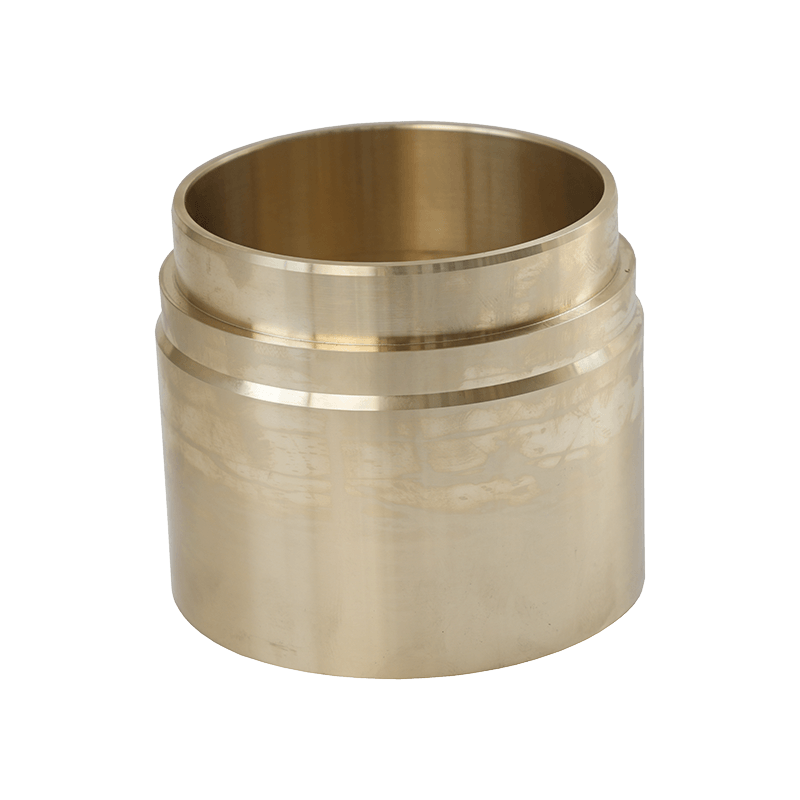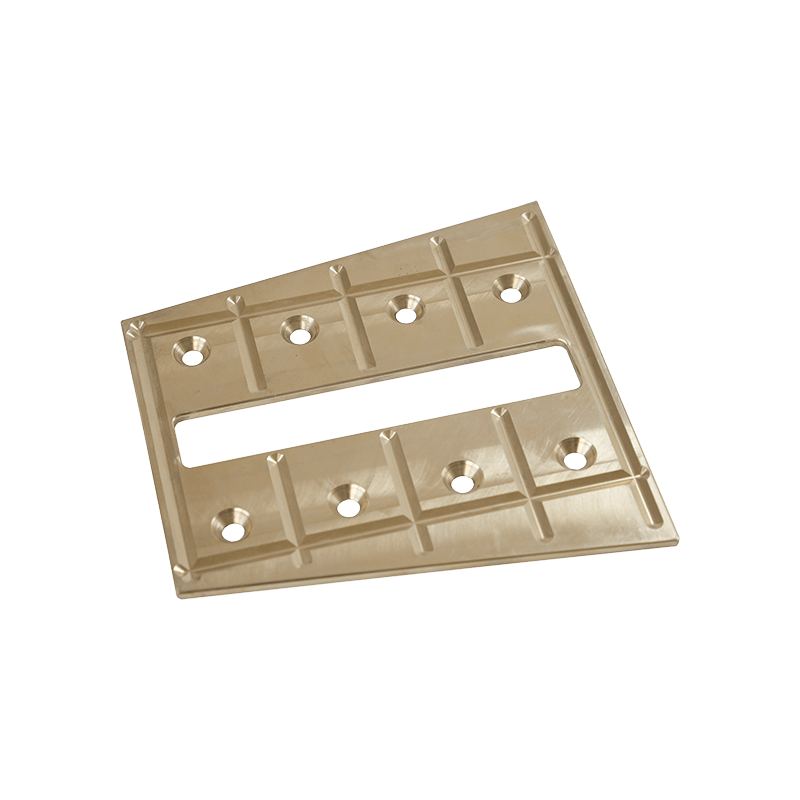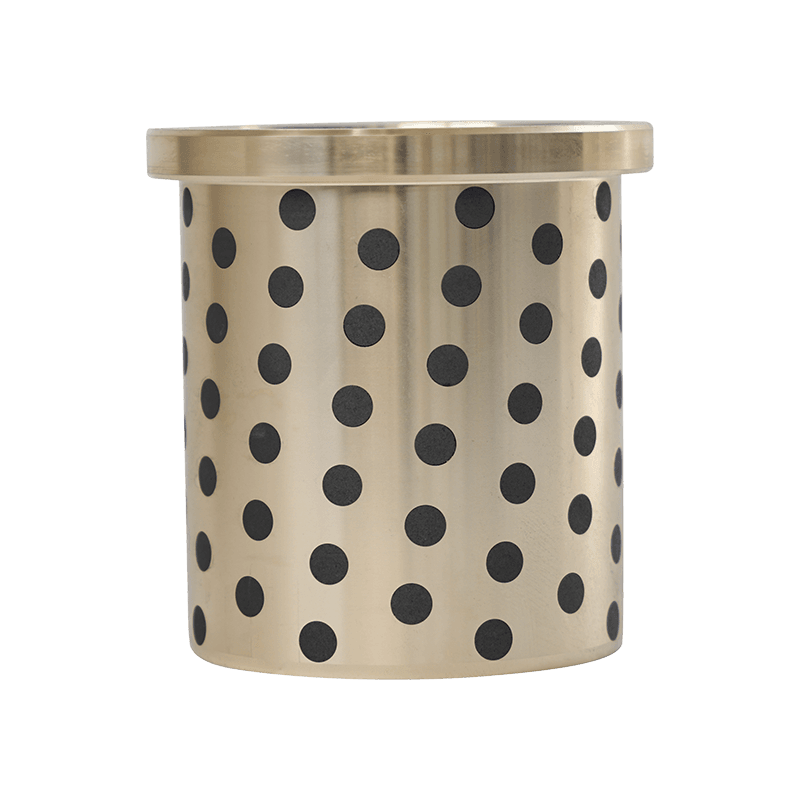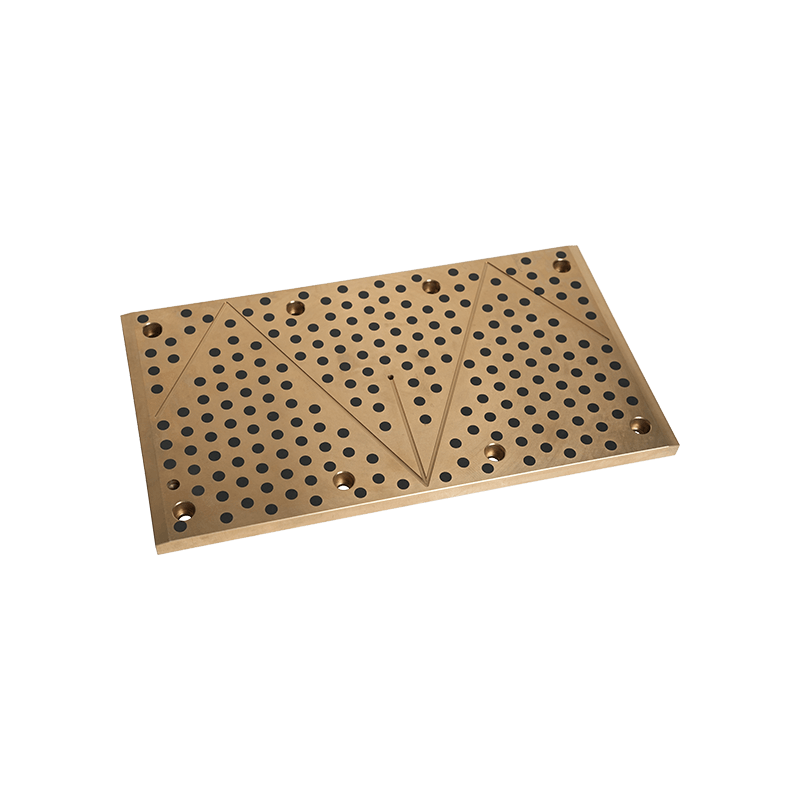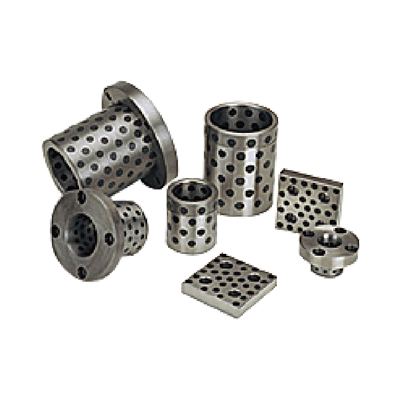Self-lubricating scraper bearings can cope with the challenges of high temperature, corrosive substances and other complex environmental conditions, mainly relying on their special design, material selection and lubrication mechanism.
High temperature environment places high demands on the lubrication performance, material stability and wear resistance of bearings. Self-lubricating scraper bearings usually use self-lubricating materials with high temperature resistance, such as graphite, MoS₂ (molybdenum disulfide), polytetrafluoroethylene (PTFE), etc. These materials have high thermal stability and good friction characteristics.
At high temperatures, graphite can form a stable lubricating film, effectively reducing the friction coefficient, and can still maintain good lubrication effect in high temperature environments. The thermal stability of graphite materials can usually reach 300-500°C, which is suitable for use in high temperature conditions.
MoS₂ is a solid lubricating material with an extremely low friction coefficient. It can form a thin lubricating film in a high temperature environment to ensure low friction during bearing operation. The high temperature resistance of MoS₂ can reach 500°C or even higher, which is suitable for harsh high temperature operations.
PTFE has good high temperature resistance and is suitable for long-term operation at high temperatures. Its temperature resistance range is generally around 260°C, which can cope with some high temperature load environments.
In addition, when designing, the sealing and lubrication systems of the bearings will take into account the impact of temperature on the volatilization or drying of the lubricant to ensure that the lubrication system remains effective at high temperatures.
In industrial applications, bearings are often exposed to corrosive gases, liquids or chemicals. The corrosion resistance of self-lubricating scraper bearings is particularly important in these harsh environments. The following are common solutions:
Some self-lubricating scraper bearings are made of stainless steel or alloy materials, which have good corrosion resistance and can resist the erosion of corrosive media such as acids and alkalis.

Applying corrosion-resistant coatings (such as nickel plating, chrome plating, ceramic coating or other corrosion-resistant coatings) on the bearing surface can enhance the corrosion resistance of the bearing. These coatings can effectively prevent direct contact with corrosive substances and extend the service life of the bearing.
Solid lubricants such as graphite and molybdenum disulfide also have good performance in corrosive environments. They not only provide lubrication, but also avoid direct contact in the absence of oil film, thereby reducing the risk of corrosion.
For environments with particularly strong corrosive substances (such as strong acids or alkalis), the lubricating materials of self-lubricating scraper bearings need to select materials with strong chemical stability, such as polyimide (PI), polyetheretherketone (PEEK), etc., which can withstand more chemical erosion.
In some extremely dirty or dusty working conditions, bearings are faced with the invasion of particles such as dust and sand, which will aggravate wear and damage the lubrication effect. The solutions for self-lubricating scraper bearings to deal with this situation include:
In order to prevent external particles from entering the bearing, self-lubricating scraper bearings are usually designed with efficient sealing systems. These sealing systems not only prevent the leakage of lubricants, but also effectively isolate the invasion of pollutants.
Select lubricating materials that can adapt to the particle environment, such as solid lubricants. These lubricating materials can maintain lubrication performance under the friction of particles, thereby reducing wear.
Some self-lubricating scraper bearings adopt a self-cleaning function, that is, a scraper or other cleaning device is designed to regularly remove accumulated pollutants to keep the bearing working properly.
When working in harsh environments, the wear resistance of the bearing is key. Self-lubricating scraper bearings can effectively extend their service life by using highly wear-resistant lubricating materials and enhanced surface treatment technology.
Some self-lubricating scraper bearings use specially designed high friction coefficient materials to increase lubrication and reduce wear.
In high-wear environments, wear-resistant coatings (such as titanium nitride, chromium nitride, etc.) are used to further enhance the durability of bearings.
Through these technical means and design strategies, self-lubricating scraper bearings can operate stably under complex environmental conditions such as high temperature and corrosive substances, ensuring the high efficiency and long-term stability of mechanical equipment.

 English
English Deutsch
Deutsch Español
Español русский
русский

 +0086-513-88690066
+0086-513-88690066